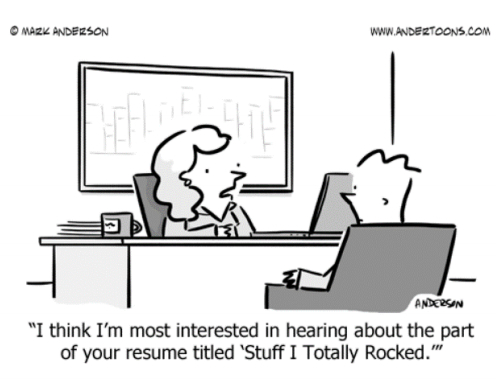
Don’t Let The Dog Days Of Summer
Wreak Havoc On Your Technology
Heat and technology don’t mix. We’re talking about things like PCs, servers and everything inside of them. A lot of manufacturers try to make sure the heat generated by hardware has a way to escape, but it’s not always enough. And what about heat from the outside? This is where problems can really get out of control.
Right now, we’re in the dog days of summer. The temperatures are high and air conditioners are running at full capacity in an attempt to keep us cool.
As you run your business, your technology is running and generating its own heat, as well. If it can’t keep cool, the end result can be disastrous.
Why Every Business Should Take Heat Seriously
Smaller devices like laptops, tablets and more compact desktop computers are especially susceptible to heat damage simply because they are not
Right now, we’re in the dog days of summer. The temperatures are high and air conditioners are running at full capacity in an attempt to keep us cool.
As you run your business, your technology is running and generating its own heat, as well. If it can’t keep cool, the end result can be disastrous.
Why Every Business Should Take Heat Seriously
Smaller devices like laptops, tablets and more compact desktop computers are especially susceptible to heat damage simply because they are not
as efficient at removing heat internally. As they heat up, their performance degrades. If they get hot enough, it can cause irreparable damage. Most devices will automatically shut down if they get too hot – you want to avoid getting to that point as much as you can.
Overheating can also cause damage to specific components. There have been reports of graphics cards catching on fire due to heat and heat-caused electrical issues. Heat can also destroy CPUs.
While CPUs are designed to withstand the high temperatures created by processing data, they have their limits. If the computer is forced to overwork as it tries to stay cool, the end result can be a melted CPU!
To make matters worse, as heat intrudes on your devices, they will struggle to function correctly. For
Overheating can also cause damage to specific components. There have been reports of graphics cards catching on fire due to heat and heat-caused electrical issues. Heat can also destroy CPUs.
While CPUs are designed to withstand the high temperatures created by processing data, they have their limits. If the computer is forced to overwork as it tries to stay cool, the end result can be a melted CPU!
To make matters worse, as heat intrudes on your devices, they will struggle to function correctly. For
Continued on page 2
Continued from page 1
example, you may even start to notice slowdowns when using your laptop. Programs may take forever to load, and they may even freeze, leaving you without a way to work!
For any business, this can be devastating. When you’re dealing with clients and customers, the last thing you need is for your systems to fail. Suddenly, productivity falls through the floor, and you’re left scrambling as you try to figure out what to do next. It can bring your business to a standstill.
But it doesn’t end there! If your systems overheat – either due to internal issues (such as inadequate heat dissipation), external issues (summer temperatures) or a combination of both – you could lose valuable data.
Heat is a common cause of data loss. Heat can damage hard drives and solid-state disk drives. If you don’t have an off-site backup (whether it’s local or cloud-based), that data may be lost forever.
And if you lose that data, it can be incredibly costly to get your business back up and running. It’s not only data lost, but also it’s time and money lost. It can be as devastating as a data breach or cyber-attack and can leave you with few options.
What Can You Do?
First, it’s important to assess your cooling needs. Does your business have adequate air conditioning? If you have a data or server room, does that have adequate air conditioning?
example, you may even start to notice slowdowns when using your laptop. Programs may take forever to load, and they may even freeze, leaving you without a way to work!
For any business, this can be devastating. When you’re dealing with clients and customers, the last thing you need is for your systems to fail. Suddenly, productivity falls through the floor, and you’re left scrambling as you try to figure out what to do next. It can bring your business to a standstill.
But it doesn’t end there! If your systems overheat – either due to internal issues (such as inadequate heat dissipation), external issues (summer temperatures) or a combination of both – you could lose valuable data.
Heat is a common cause of data loss. Heat can damage hard drives and solid-state disk drives. If you don’t have an off-site backup (whether it’s local or cloud-based), that data may be lost forever.
And if you lose that data, it can be incredibly costly to get your business back up and running. It’s not only data lost, but also it’s time and money lost. It can be as devastating as a data breach or cyber-attack and can leave you with few options.
What Can You Do?
First, it’s important to assess your cooling needs. Does your business have adequate air conditioning? If you have a data or server room, does that have adequate air conditioning?

Look at individual devices – do they have adequate cooling or do they need to be supplemented? Second, assess your data security needs. Do you keep all of your data on-site? In the event of an emergency, and if your data is compromised, do you have a contingency plan? Do you regularly back up your data?
There are a lot of questions to consider, but they’re all important. Your data and the health of your business is top priority. If you have questions about your technology cooling needs – as well as data protection and backup – consider partnering with a managed services provider (MSP) or an experienced IT services firm. They can help you solve all of these problems and get you through the dog days of summer like it’s nothing!
"If the computer is forced to overwork as it tries to stay cool,
the end result can be a melted CPU!"
the end result can be a melted CPU!"
Get a FREE Report: What Every Small-Business Owner Must Know About Protecting And Preserving Their Company’s Critical Data And Computer Systems
This report will outline in plain, nontechnical English the common mistakes that many small-business owners make with their computer networks that cost them thousands in lost sales, productivity and computer repair bills and will provide an easy, proven way to reduce or completely eliminate the financial expense and frustration caused by these oversights.Download your FREE copy today at bensingerconsulting.com/protect/ or call our office at (602) 362-0202.

3 Types Of Questions You Should Never Ask As A Leader Of A Major Company
At ghSMART, we make it our mission to advise CEOs and other leaders of large companies on the biggest, most important decisions that they face – the decisions that can make or break a business. How do we do that, exactly? Well, without getting into the weeds, we usually guide our clients through their decision-making process by simply helping them ask the right questions.
The “right questions” are typically the kind that get to the heart of the issue. They produce answers, and thus actions, that lead to the best possible outcome from the initial decision. However, where there are “right questions,” there are also wrong questions that can lead to crippling initiatives that could affect an entire business. If you don’t want that for your company, here are three common types of wrong questions that you should avoid:
The “right questions” are typically the kind that get to the heart of the issue. They produce answers, and thus actions, that lead to the best possible outcome from the initial decision. However, where there are “right questions,” there are also wrong questions that can lead to crippling initiatives that could affect an entire business. If you don’t want that for your company, here are three common types of wrong questions that you should avoid:
1. Questions Having To Do With Potential Ethical Dilemmas
In my experience, some of the wisest leaders in business are the ones who, when faced with a potential ethics question, respond the same way: “If you have to ask, then don’t.”
What I mean by that is if there’s even a shadow of a possibility that saying “yes” to a question about business leadership could propel you into morally gray territory, then it’s not a question worth asking at all. In fact, even if your decision could be misinterpreted as unethical, you should avoid the question. At ghSMART, we call this practice “having 110% integrity” – 100% for avoiding ethical dilemmas, and an extra 10% for avoiding dilemmas that could even just seem to make your company appear unethical. In summation, if you ever have to ask, “Would it be ethical if …” then it’s better to leave the question unasked.
2. Questions About Whether Someone Is Under-performing
A good rule of thumb for under-performance is this: if you ever question whether someone is under-performing in service to your team’s vision, they are absolutely under-performing. Subordinates typically follow a fairly predictable work pattern – one that pretty clearly indicates their strengths and weaknesses.
In my experience, some of the wisest leaders in business are the ones who, when faced with a potential ethics question, respond the same way: “If you have to ask, then don’t.”
What I mean by that is if there’s even a shadow of a possibility that saying “yes” to a question about business leadership could propel you into morally gray territory, then it’s not a question worth asking at all. In fact, even if your decision could be misinterpreted as unethical, you should avoid the question. At ghSMART, we call this practice “having 110% integrity” – 100% for avoiding ethical dilemmas, and an extra 10% for avoiding dilemmas that could even just seem to make your company appear unethical. In summation, if you ever have to ask, “Would it be ethical if …” then it’s better to leave the question unasked.
2. Questions About Whether Someone Is Under-performing
A good rule of thumb for under-performance is this: if you ever question whether someone is under-performing in service to your team’s vision, they are absolutely under-performing. Subordinates typically follow a fairly predictable work pattern – one that pretty clearly indicates their strengths and weaknesses.
If you catch yourself asking, “I wonder if so-and-so will ever rise to the challenge and display qualities and strengths I haven’t seen yet,” then the answer should be clear. Their strengths do not match the role they are in, and you should probably find someone more suited for their role and your vision.
3. Questions About Whether You Can Trust Your Boss
I’ve heard it said that people don’t quit companies, they quit bosses. I think that line of thinking has a lot of truth to it. If you have to ask if you can trust the person you’re working for to look out for your best interests and the best interests of your company, then you probably can’t trust them. You should find a boss who cares about your career goals and who will help you succeed and accelerate toward them. If you don’t have that kind of leadership, it might be best to look elsewhere for work.
3. Questions About Whether You Can Trust Your Boss
I’ve heard it said that people don’t quit companies, they quit bosses. I think that line of thinking has a lot of truth to it. If you have to ask if you can trust the person you’re working for to look out for your best interests and the best interests of your company, then you probably can’t trust them. You should find a boss who cares about your career goals and who will help you succeed and accelerate toward them. If you don’t have that kind of leadership, it might be best to look elsewhere for work.

Dr. Geoff Smart is the founder and chairman of ghSMART, which helps Fortune 500 companies, CEOs and successful entrepreneurs alike make smart decisions when it comes to curating talented teams. For three consecutive years, Forbes ranked ghSMART as the best management consulting firm in its industry, and it has produced three best-selling books outlining their principles. Additionally, Dr. Smart published Leadocracy: Hiring More Great Leaders (Like You) Into Government, which was a New York Times best seller.
GET WEEKLY CYBERSECURITY TIPS IN YOUR EMAIL!
VISIT BENSINGERCONSULTING.COM/TIPS/
Android Has A Big Problem And You Need To Know About It
Android is the most popular mobile platform in the world. Because of this, it’s also the target of countless hackers and cybercriminals who want to break into the platform and exploit its users.
As Android ages, fewer people upgrade to the latest version of Google’s mobile operating system. They don’t upgrade because their devices don’t support the latest updates or their phone manufacturer (or service provider) is slower to roll out updates to its users. These updates are critical to keeping users safe from outside intrusion.
However, these problems are only the tip of the iceberg for Google. Many phone makers – particularly Chinese phone makers like Xiaomi, Oppo, Vivo and Huawei – are either in the process of adopting a new operating system that is not Android or thinking about it. It could mean Android’s dominance is starting to fade, and we could be looking at a future with a little less Google in our lives. Forbes, May 14, 2021
Android is the most popular mobile platform in the world. Because of this, it’s also the target of countless hackers and cybercriminals who want to break into the platform and exploit its users.
As Android ages, fewer people upgrade to the latest version of Google’s mobile operating system. They don’t upgrade because their devices don’t support the latest updates or their phone manufacturer (or service provider) is slower to roll out updates to its users. These updates are critical to keeping users safe from outside intrusion.
However, these problems are only the tip of the iceberg for Google. Many phone makers – particularly Chinese phone makers like Xiaomi, Oppo, Vivo and Huawei – are either in the process of adopting a new operating system that is not Android or thinking about it. It could mean Android’s dominance is starting to fade, and we could be looking at a future with a little less Google in our lives. Forbes, May 14, 2021
TikTok And Small Business: A Match Made In Digital Heaven?
Many businesses overlooked TikTok as little more than another distraction, but new data suggests small businesses can seriously benefit from the popular app. As reported and covered by Inc., the app has transformed into a major marketing tool for businesses. It allows them to connect with customers and potential customers across various demographics.
A lot of the success comes down to TikTok’s algorithmic approach, which is fine-tuned to give businesses a huge advantage with their marketing. There is a learning curve, but a number of businesses that have embraced the short video format have been able to make connections they just haven’t found on other social media platforms. If it isn’t something you have looked into yet, it may be worth exploring. Inc., May 4, 2021
Many businesses overlooked TikTok as little more than another distraction, but new data suggests small businesses can seriously benefit from the popular app. As reported and covered by Inc., the app has transformed into a major marketing tool for businesses. It allows them to connect with customers and potential customers across various demographics.
A lot of the success comes down to TikTok’s algorithmic approach, which is fine-tuned to give businesses a huge advantage with their marketing. There is a learning curve, but a number of businesses that have embraced the short video format have been able to make connections they just haven’t found on other social media platforms. If it isn’t something you have looked into yet, it may be worth exploring. Inc., May 4, 2021







 Arizona's Leading Cybersecurity Expert ®
Arizona's Leading Cybersecurity Expert ®

